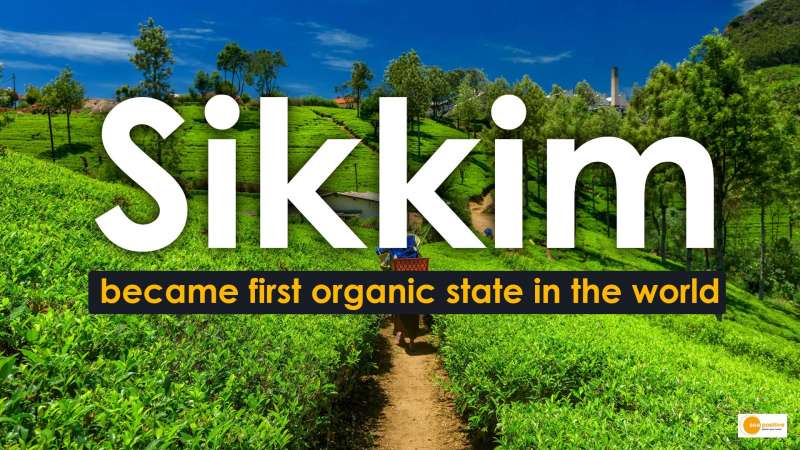

Sikkim is the “world’s first organic state,” according to the World Book of Records in London. The World Book of Records London compiles and authenticates incredible records from all over the world. This recognition implies that the state has established itself as the world’s first to implement a 100 percent organic policy.
According to the report, Sikkim state in India was chosen because it was the first organic state in the world and had the best government. It was also the state with the lowest crime rate.
Sikkim is world’s first fully organic state
Because of the negative effects of farming on the environment, organic farming is being promoted. Sikkim is the world’s first fully organic state and serves as a model for the rest of the world. In recognition of its enormous achievement, the United States also bestowed the Oscar Award for Best Policies on Sikkim.
The Sikkim state administration committed to making the region an organic state in 2003, and thanks to its initiatives and regulations, Sikkim was named the first organic state in the world in 2016.
How Did Sikkim Become an Organic State?
Pawan Chamling, the then-chief minister, established the Sikkim State Board. Cooperation has also begun with a number of domestic and international agricultural development and research organisations, including Swiss biological research.
The government concentrated on creating clusters of local panchayats for organic farming. In Sikkim, organic farming was practiced on 8 lakh 35,000 hectares of land, helping 4 lakh farmers. About 2.5 thousand farmer interest groups were established, and via them, about 45 thousand farmers were connected to the organic program. The goal was to cover 50,000 hectares of land.
What is a Bio Village?
Surprisingly, Sikkim saw a drop in revenue and output when the state decided to switch to organic farming. People learned about organic fertilisers by visiting organic farms, schools, and even homes. Nutrition management, methods, pest control, and agricultural laboratories were also covered.
On the treatment of acidic soil, organic packaging, etc., there were numerous awareness campaigns organised. It was not simple to make the shift to a fully organic state. The communities were initially taken in by the state government, which decided to transform them into bio-villages. All people now have access to organic manure once the manure quota was closed.
Additionally, individuals were given credentials for organic farming. After adopting all these actions, Sikkim’s agricultural potential increased, and production on more than 22 lakh hectares was noted.


